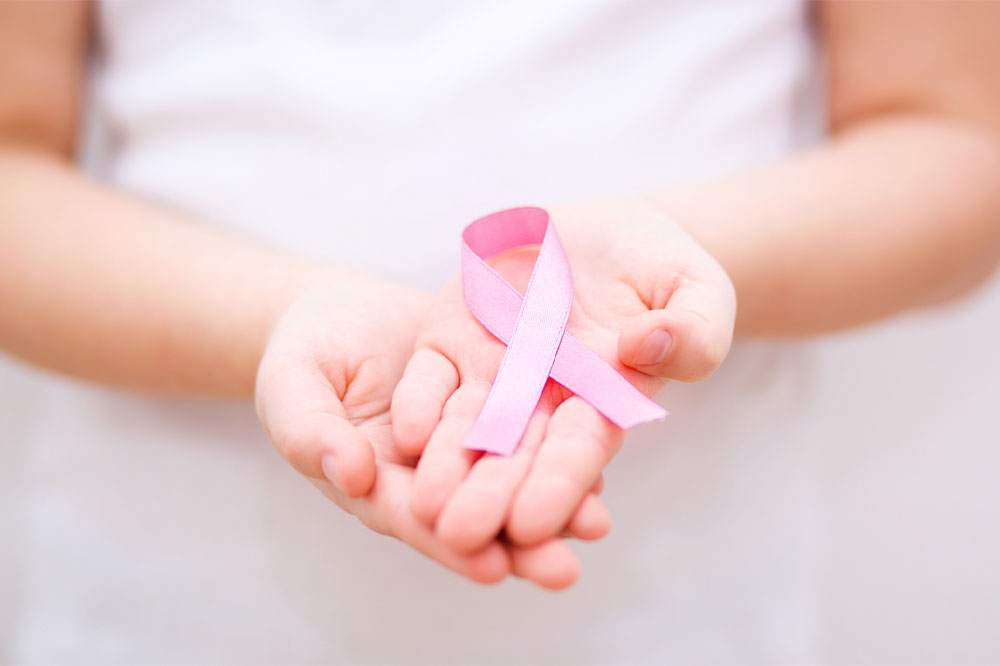
3 helpful tips to manage breast cancer
Cancer is a term used to describe a group of diseases caused due to the growth and multiplication of abnormal cells in the body. Breast cancer is when this abnormal growth starts in the breast. Around one in eight women are at risk of developing the condition. The most common sign is a lump in the breast or armpit. Here are some treatments, nutritional choices, and lifestyle changes that can help manage breast cancer:
Get the right treatment
Unfortunately, there is no cure for breast cancer yet. The various available treatments focus on reducing this condition’s symptoms and slowing cancer’s spread. Popular options include oral therapies, chemotherapy, and radiation therapy. Here is a closer look at two well-known treatments:
- CAR T-cell therapy
CAR-T cell therapy (chimeric antigen receptor T-cell therapy) is a form of immunotherapy that can help treat many different types of cancer. It uses the individual’s own immune cells to fight the harmful cells in the body. Immune cells, or T cells, are extracted from the patient’s blood and modified in a laboratory. The modified cells are then injected back into the bloodstream. They are now more capable of fighting the disease. Over the last few years, CAR-T cell therapy has progressed significantly. Health researchers are constantly conducting trials to check how effective this therapy is in fighting breast cancer. - AFINITOR
AFINITOR is another treatment option, but it is used for particular types of breast cancer. For instance, it treats postmenopausal women with advanced hormone receptor-positive and HER2-negative breast cancer. The option is mainly recommended to those who have stopped responding to specific other treatments generally used for this condition. AFINITOR works by stopping the cancer cells in the breast from getting the energy needed to survive and multiply in the body. Adverse side effects include non-infectious pneumonitis, hyperglycemia, and bacterial, fungal, and viral infections. Individuals could also have hypersensitivity, renal failure, stomatitis, and poor wound healing.
Note that these treatments are not suitable for every case of breast cancer. Doctors will suggest treatments based on the severity of the condition and the individual’s overall health, among other factors. It is best to talk to a healthcare professional before starting any treatments.
Make the right food choices
While treatments can help manage breast cancer, individuals should also take other steps that support ongoing treatment and stay healthy. A proper nutrition plan is one such supportive measure. Studies have shown that a few foods help manage breast cancer better and even prevent it to some extent. Here are some examples to consider:
- Leafy green vegetables
Spinach, mustard greens, and kale have anticancer properties. They contain antioxidants like lutein and carotene that have been linked with a reduced risk of breast cancer. So, one can add these veggies to the meals to ensure they receive these antioxidants and keep the condition at bay. - Fatty fish
Fatty fish like salmon and sardines have many health benefits, thanks to abundant omega-3 fatty acids, selenium, and antioxidants that help fight oxidative stress. While more research is needed to fully understand the effects of fatty fish on breast cancer, studies have shown that adding them to meals can help slow down the disease and reduce the risk of development. - Citrus fruits
Citrus fruits like oranges, lemons, and limes contain several essential nutrients, such as vitamin C, folate, carotenoids, and antioxidants. These are known to reduce inflammation in the body, fight oxidation, and even reduce cancer risk. - Cruciferous vegetables
Cruciferous veggies like cabbage, cauliflower, and broccoli contain glucosinolate compounds. These compounds break down into isothiocyanates in the body, which are known to have potential anticancer effects. - Fermented foods
Fermented foods contain tons of essential nutrients to help people tackle breast cancer. The popular options are kimchi, yogurt, miso, and sauerkraut. Studies have found that this positive effect comes from the immune-boosting effects of probiotics in these foods.
While many foods help fight and prevent breast and other cancers, a few can do more harm. These include fast foods like French fries and processed meats like ham and sausage. They can aggravate the condition in patients and increase the risk of occurrence in those who do not have cancer. Artificial preservatives and sugars are equally harmful and should be avoided.
Follow a healthy lifestyle
Besides food, individuals can support their breast cancer treatment with lifestyle changes that boost their overall health. Here are a few tips:
- Exercise regularly
Exercise and physical activity can help reduce fatigue that results from breast cancer treatment. It can also help lower the risk of the disease. Experts recommend a minimum of 150 minutes of physical activity per week. Exercise also helps relieve the stress most patients experience when fighting chronic diseases. Further, it can help build muscle, regain strength, and boost fitness levels. - Go for regular checkups
Individuals should visit a doctor regularly to check the progression of the disease and have treatments modified as and when the need arises. Those who do not have breast cancer but are at risk should perform physical breast exams. This includes checking for lumps by themselves. In addition, routine mammograms, breast ultrasounds, and MRIs help detect lumps and masses in the early stages of breast cancer.